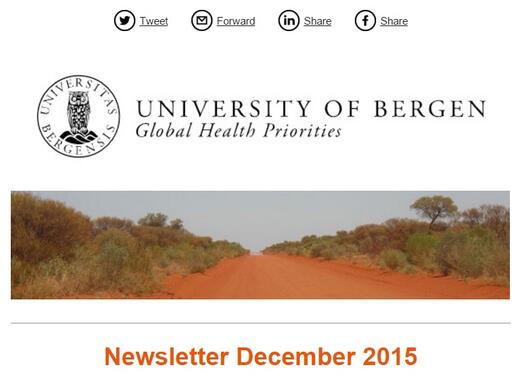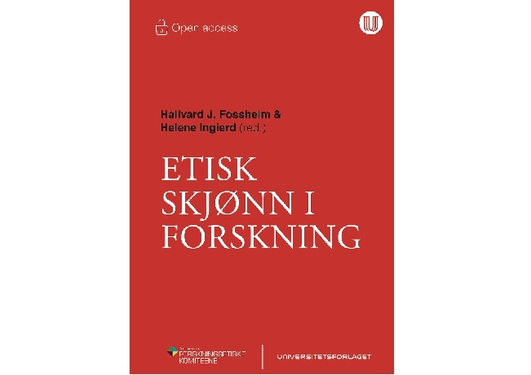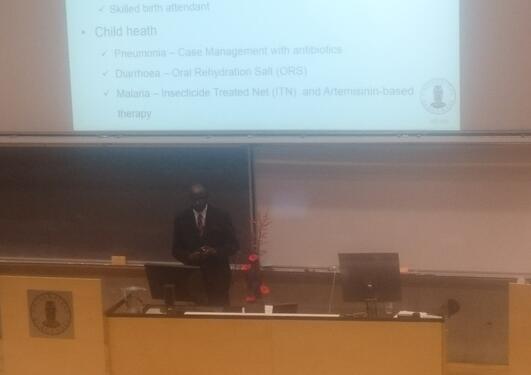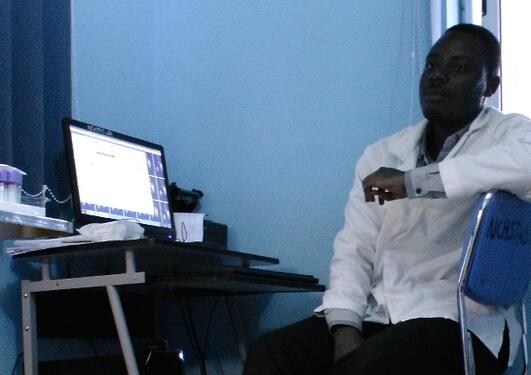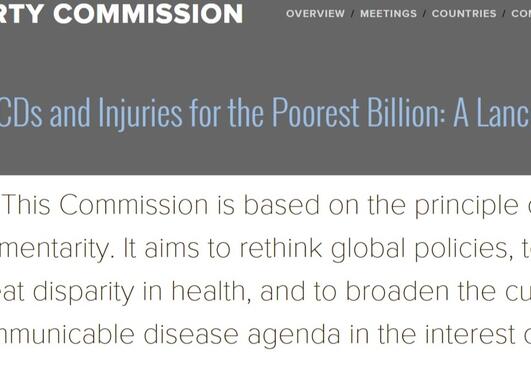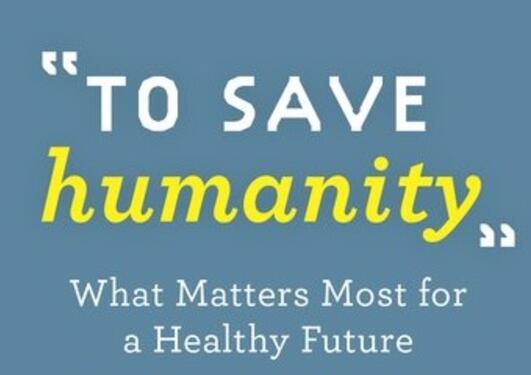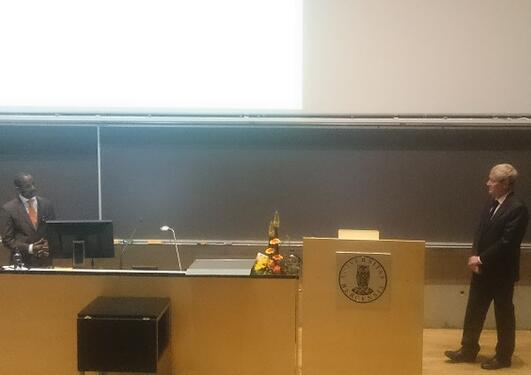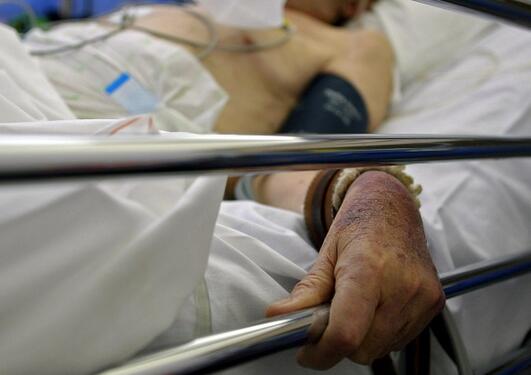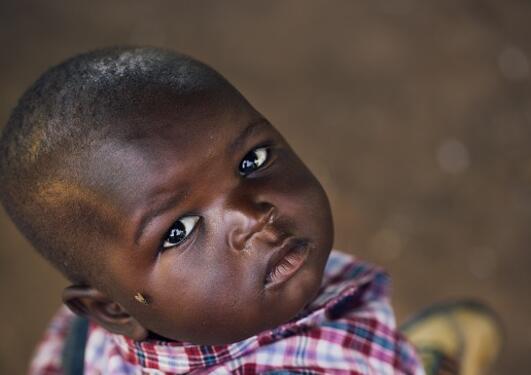Nyhetsarkiv for Globale helseprioriteringer
Surgical disease cause a high disease burden and there is limited access to surgical services in low- and middle-income countries. In a new article published in Health Policy and Planning , a DCP-Ethiopia and Priorities2020 team examined how policies to expand access to surgery in rural Ethiopia would impact health, impoverishment and equity.
Our first ever newsletter has been published and can be accessed below. Read Ole Frithjof Norheim's editorial and season's greetings here.
Vaccine and treatment interventions for children can bring large health and financial benefits to households in Ethiopia, most particularly among the poorest socio-economic groups.
How, and in what specific ways, can research institutions provide opportunities for their scientific employees to exercise well-qualified, ethical judgement in their research? Kristine Bærøe discusses this question in a recently published anthology on ethical judgment in research.
Research group member George Ruhago successfully defended his PhD thesis "Economic evaluation and equity impact analysis of interventions or maternal and child health in Tanzania" on Friday 6yh of November.
A contextualized cost-effectiveness analysis (CEA) of neuropsychiatric interventions in Ethiopia could advise authorities to prioritize between treatments. Epilepsy treatment is most cost-effective, while treatment for schizophrenia and bipolar disorder avert fewer DALYs.
Nine out of ten physicians have regretted their choice of profession due to lack of resources and difficult rationing dilemmas.
Professor and research group leader Ole Frithjof Norheim is one of 22 commissioners contributing to the new Lancet Commission on Refraiming NCDs and and Injuries for the Poorest Billion.
Could it be fair to use people's life-style choices with potential adverse impact on their health as criteria for priority settings in health care? This question is thoroughly addressed by a new paper recently published online in Journal of Medical Ethics. The paper is written by our research group member Kristine Bærøe together with Cornelius Cappelen.
Post.doc. Trygve Ottersen has published an article as part of a special symposium in Journal of Law, Medicine and Ethics on the global treath of antibiotic resistance.
Health care professionals' refusals to provide certain medical goods and services that they consider morally objectionable is a well-known and often hotly debated phenomenon. In this review paper for Philosophy Compass, post doc and group member Gry Wester provides an introduction and overview of some of the key issues.
Post.doc. and research group member Trygve Ottersen is contributing alongside prominant politicians and leaders like Margaret Chan, Bill Clinton and Jonas Gahr Støre in this new book from Oxford university Press.
Yaliso Yaya Balla has succesfully defended his PhD thesis 'Maternal and neonatal mortality in rural south Ethiopia: Comparing mortality measurements and assessing obstetric care.' The Global Health Priorities research group warmly congratulates.
Is equality best understood as a distributive concern, or should it be viewed as a social and political ideal? The former view dominates in the justice and health literature, but in a new essay Gry Wester and Kristin Vogt explore the latter view.
Estimates of the expected remaining lifetime of critically ill patients and expected life years gained from intensive care unit (ICU) admission could inform priority setting of intensive care.
In an recent debate in the American Journal of Bioethics research group member and post doc Gry Wester participate alongside well known philosophers as Norman Daniels and Jonathan Wolff in a debate on the social determinants of health framework.
Deaths due to diarrhoea is one of the main killers of children in Sub Saharan Africa. In a new paper published in BMJ open Solomon Tessema Memire and Kjell Arne Johansson together with US examine the impact of universal public financing of rotavirus vaccination and diarrhoeal treatment in Ethiopia.
Identifying unfair health inequality is important in order to make correct priorities in health. But only a portion of observed health inequality can be explaind empircaly. A new paper explains why how we treat this unexplained inequality is not only a methodological question, but also an ethical one.
Sider
- september 2021 (1)
- januar 2020 (1)
- desember 2018 (1)
- november 2018 (1)
- oktober 2018 (2)
- september 2018 (1)
- august 2018 (1)
- juli 2018 (1)
- juni 2018 (2)
- mai 2018 (2)
- april 2018 (1)
- mars 2018 (1)
- desember 2017 (2)
- september 2017 (3)
- juni 2017 (2)
- april 2017 (1)
- mars 2017 (2)
- desember 2016 (1)
- november 2016 (1)
- oktober 2016 (1)
- juni 2016 (1)
- mai 2016 (1)
- april 2016 (3)
- mars 2016 (2)
- februar 2016 (1)
- januar 2016 (1)
- desember 2015 (2)
- november 2015 (2)
- oktober 2015 (2)
- september 2015 (2)
- august 2015 (3)
- juni 2015 (2)
- mai 2015 (4)
- april 2015 (1)
- mars 2015 (2)
- november 2014 (1)
- oktober 2014 (1)
- september 2014 (3)
- juni 2014 (1)
- mai 2014 (4)

